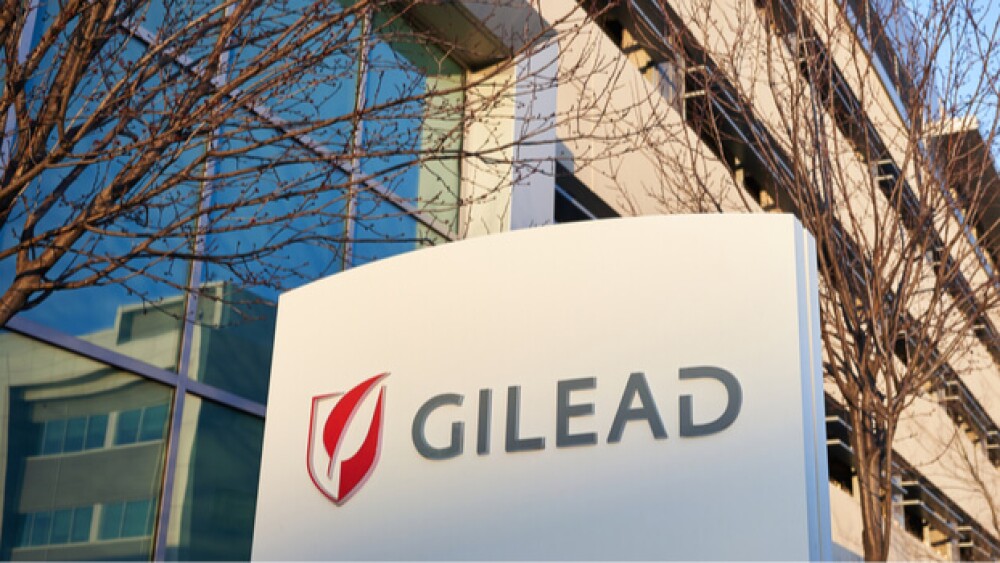Gilead won the most recent battle when a U.S. appeals court threw out a $1.2 billion ruling against the company.
Tada Images/Shutterstock
Gilead Sciences and Bristol Myers Squibb Company are competing in the CAR-T space clinically and in the courts. And Gilead won the most recent battle when a U.S. appeals court threw out a $1.2 billion ruling against the company.
Bristol Myers Squibb has alleged that Gilead and its Kite Pharma unit’s Yescarta (axicabtagene ciloleucel) infringed on the patent for its own CAR-T therapy, lisocabtagene maraleucel (liso-cel). BMS acquired Celgene, the parent company of Juno Therapeutics, in 2019 for $74 billion. Juno spun out of the Fred Hutchinson Cancer Research Center in 2013. In 2018, Celgene acquired Juno for $9 billion. The patent battle was over a Juno patent that it licensed from Memorial Sloan Kettering Cancer Center (MSKCC).
In February 2021, the FDA approved BMS’s liso-cel under the brand name Breyanzi for adults with certain forms of large B-cell lymphoma after two or more previous therapies.
Juno brought the original case against Kite in 2017. In 2019, a jury found that Kite willfully infringed on the Juno and MSKCC patent and awarded them $778 million. U.S. District Judge Philip Gutierrez increased the award to $1.2 billion last year in Los Angeles federal court.
The appeals ruling reversed the decision. BMS stated it disagreed with this ruling and would seek a review of the decision.
Chief U.S. Circuit Judge Kimberly Moore wrote for the three-judge appeals panel, which unanimously decided that the relevant parts of Juno’s patent were invalid. The decision stated that the sections of the patent had insufficient written description and details. The other two judges were Sharon Prost and Kathleen O’Malley.
In an oral argument in July, Judge Moore compared the patent’s description to attempting to identify a specific car by stating it has four wheels.
CAR-T (chimeric antigen receptor T-cell) therapy is where T-cells are isolated from a cancer patient, engineered in the laboratory by adding a gene for a chimeric antigen receptor (CAR), grown, then infused back into the patient. There, they become a living therapy highly tuned to attack the patient’s cancer.
Kite’s argument is built on a written description of the ‘190 patent, specifically around the single-chain antibody variable fragment (scFv). This fragment recognizes and binds to specific tumor antigens in order for a CAR-T cell to attack cancer cells. Kite’s argument was the patent was invalid because it covered “millions of billions of” possible scFv candidates without describing its specific structural features or specifics about which scFvs would function. In their argument, the written description wasn’t detailed enough to meet the requirements of the patent laws. The appeal judges agreed with the argument.
In the judges’ opinion, they wrote that the evidence doesn’t support the jury’s finding that the ‘190 patent “disclosed sufficient information to show the inventors possessed the claimed genus of functional CD19-specific scFvs as part of their claimed CAR. Without more guidance, in a vast field of possible CD19-specific scFvs with so few of them known, no reasonable jury could find the inventors satisfied the written description requirement.”
The best-known examples of cell therapies are CAR-T products, such as Gilead Sciences/Kite’s Yescarta (axicabtagene ciloleucel) for non-Hodgkin lymphoma, acute lymphoblastic leukemia, mantle cell lymphoma, and other indications, and Novartis’ Kymriah (tisagenlecleucel), approved for acute lymphoblastic leukemia, chronic lymphoid leukemia, diffuse large B-cell lymphoma, as well as others.
Yescarta was developed by Kite Pharma. Gilead acquired Kite for $11.9 billion in 2017.
Featured Jobs on BioSpace





